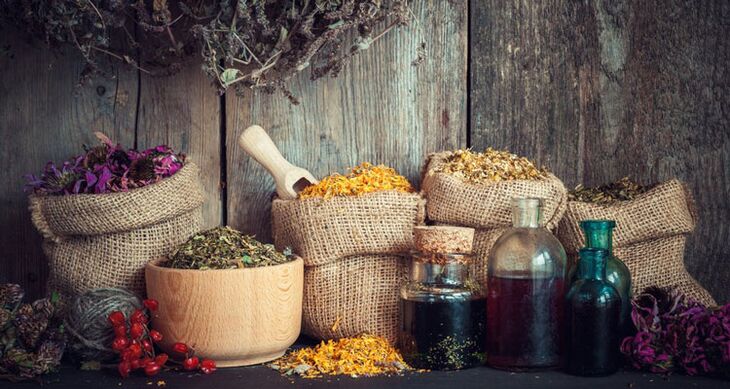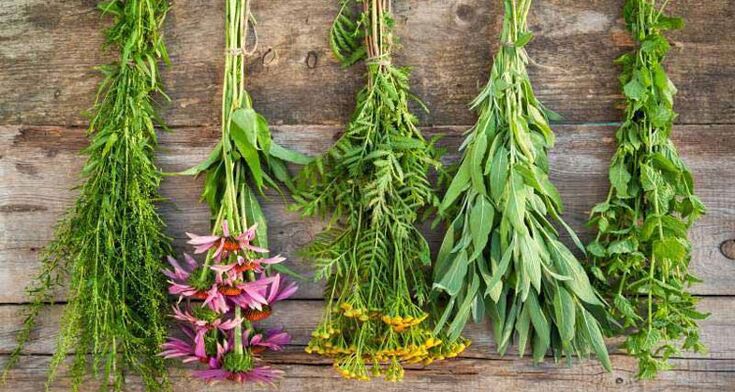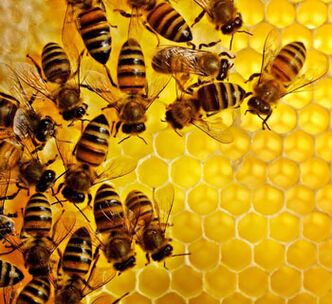
Treatment of prostatitis with folk remedies will only be effective if several conditions are met. Before trying new therapies, you should consult your doctor. If you feel worse, stop treatment and seek help from a urologist.
Traditional medicine has a whole arsenal of effective tools to combat the inflammatory processes and congestion accompanying prostatitis. Decoctions and tinctures made from herbs, roots and plants are used. Apitherapy gives good results, as does using urine to make creams. You need to be well prepared for the treatment.
Before using alternative medicines
The best folk remedy for prostatitis in men meets several requirements:
- It does not harm the body - an incorrectly chosen remedy can cause the disease to worsen and lead to a rapid deterioration of well-being.
- It is aimed at alleviating the symptoms and eliminating the causes leading to the development of inflammation.
- It strengthens the immune system and the body as a whole.
The fight against prostatitis with folk remedies must be conscious. To achieve good results, you need to understand the etiology of inflammatory processes and remember the precautions.
You cannot get rid of prostatitis completely with traditional methods. All of the methods listed below are aimed at reducing symptoms and relieving the condition.
Treatment of prostatitis with folk remedies at home involves many dangers:
- Some self-medication methods reduce the effectiveness of drugs by blocking the action of the active ingredients of the drugs and causing allergic reactions.
- During the period of exacerbation, all methods are dangerous and require consultation with the attending physician.
- Don't give in to complacency. Even if any method brings relief, you should still have regular medical check-ups. Stagnant prostatitis tends to relapse in its chronic form. The absence of symptoms does not mean that inflammation does not exist.
Treatment of the initial form of prostatitis with folk remedies can be really effective. You should not expect a quick recovery if the disease has become chronic.
To choose the best treatment, you need to understand the causes of prostatitis and the main types of inflammatory processes:
- Non-bacterial prostatitis— the cause of the inflammation usually lies in hypothermia of the body, microtraumas of the prostate, changes caused by stress, sedentary work and other factors. The aim of the therapy is to improve blood microcirculation and relieve symptoms.
- Infectious prostatitis— occurs against the background of the penetration of STIs, fungi or pathogenic microorganisms into the body. Self-treatment of bacterial prostatitis is strictly prohibited. Long-term antibacterial therapy is necessary. The formation of a purulent form leads to death.
- Congestive prostatitis- the second name for chronic inflammation of the prostate. As the term suggests, the disorder is caused by fluid stagnation in the pelvic area. The microcirculation of the blood is interrupted, the outflow of seminal fluid occurs irregularly.
Chronic prostatitis is difficult to treat, as it is necessary to restore the normal functioning and functions of the glandular tissue. - Acute prostatitis- during the exacerbation of inflammatory processes, any medicine can harm the body. Self-medication is extremely dangerous.
Stagnant or chronic prostatitis is the most difficult to treat and requires a long recovery time. The disease in this form is always preceded by acute inflammatory processes.
In the initial stage, it is much easier to prevent the development of prostatitis. In an advanced state, folk remedies are aimed exclusively at reducing unpleasant symptoms.
What folk remedies are effective in prostatitis?
Methods that help to cope with the main complications caused by inflammation of the prostate can be considered effective. Consequences of the disease:
- Bladder obstruction- prolonged inflammation leads to the development of sclerotic lesions of the bladder neck and the appearance of dysuric disorders. The man has a frequent urge to urinate and the number of visits to the toilet increases at night.
- Impairment of prostate function- inflammation leads to a decrease in the quality of the ejaculate. The tissues are unable to absorb and process testosterone, which causes a decrease in libido.
Restoring potency after prostatitis remains one of the main tasks of alternative medicine. Urological herbal preparations, enemas, decoctions and infusions are widely used to restore erectile function and increase desire. - Pain syndrome- a man experiences discomfort when going to the toilet or during sexual intercourse. Non-traditional methods of treating prostatitis are quite effective in relieving pain and other unpleasant symptoms.
The effectiveness of many folk methods has been proven: they are based on herbs and natural gifts, as well as beekeeping products. Reduce pain, relieve inflammation and congestion in baths and herbal body lotions.

Recipes from the people based on herbs
A whole range of preparations, decoctions and tinctures are used in herbal medicine. Dry mixtures are brewed as teas. Crushed herbs are added to rectal suppositories and decoctions intended for enemas.
The herb selected for therapy has many properties: diuretic, antiseptic, sedative and vasodilator. The recipes use a mixture of several herbs described below:
- Burdock- has a wound-healing and anti-tumor effect. The leaves and rhizomes are used to make medicinal decoctions. The dried plant prevents the formation of tumors. Burdock tincture is sold in pharmacies. If necessary, you can make a potion yourself.
- Licorice— the main effect is an increase in the number of prescribed drugs. At the same time, it also has an anti-inflammatory and enveloping effect. Licorice root is used. The composition must be prepared extremely carefully.
- St. John's wort- has antibacterial and antitumor effects. Taking infusions activates the production and quantity of sex hormones in the body. St. John's wort treats any disorder and inflammation of the urogenital system.
- Rhodiola rosea or golden root- a remedy that has a positive effect on potency. Another name for Rhodiola rosea is pennywort. It has a generally positive effect on the whole body: the immune system and other vital functions. An infusion of pennywort stimulates the gastrointestinal tract and is useful for hemorrhoids.
- Bloodweed- the plant is poisonous. The amount of use is chosen by a competent herbalist. The composition of celandine contains alkaloids and flavonoids (pain relievers) whose properties are similar to opiates, essential oils and amino acids. Celandine is a natural antiseptic that relieves inflammation and improves cell metabolism.
- Kalanchoe- the plant reduces the intensity of inflammatory processes and relieves pain. Kalanchoe contains organic acids and vitamins. Taking zinc-rich juice drops improves men's health.
- mistletoe- a plant that stops bleeding and heals wounds. Mistletoe is included in many urological preparations. The active ingredients improve metabolism and cell permeability, thus increasing the effectiveness of drug therapy.
- Parsleyfolk diuretic and way to increase desire and potency. The juice of the plant and decoctions made from crushed seeds are used for therapy. Parsley is a natural antiseptic and contains zinc and manganese. Regular use of infusions improves digestion and lowers blood sugar.
In most cases, medicinal decoctions are not made using individual herbs, but rather urological preparations that act on several causes of prostatitis at the same time and eliminate some of the complications caused by the disease. The preparations are sold in pharmacies and contain about 10 different plants.
Here is one of the popular recipes that help with prostatitis. The composition requires approximately equal proportions of black elderberry and hawthorn fruit, as well as celandine and mistletoe leaves. 2 tbsp. l. dry composition, pour 500 ml of boiling water. They insist for half an hour. Drink 100 ml three times a day.
With the help of medicinal plants, you can alleviate the patient's condition and stabilize his well-being. However, herbs cannot replace official medicine.
Making medicines from nature's gifts
Urinary vasodilator folk remedies, as well as those compounds that have a beneficial effect on normalizing potency and improving the functioning of glandular tissues, are considered optimal from the point of view of treatment.
Alternative medicine uses: plant fruits, mushrooms, seeds and rhizomes. Some compounds are toxic, so consult your doctor before use:
- Pear— to alleviate the condition, you can simply eat 2-3 raw fruits a day. Dry pears are suitable for making concoctions. Half a kilogram of fruit is soaked in 2 liters of boiled water for 12 hours. After that, the resulting pear infusion is boiled in a closed container. We do not add sugar to the finished compote.
- Garlic— the product contains a large amount of essential oils. Garlic fights against pathogenic microorganisms and viruses. It is used both raw and in decoctions. To prepare it, take 5 cloves of large garlic and add 400 ml of boiled water. Leave it for 10 hours. Take 100 ml twice a day before meals.
- Chaga or birch mushroom- is made as follows. About 250 gr. I pour 2 liters of mushrooms. boiling water. Leave the mixture in a dark place for 120 minutes. Chaga was devastated. Add 200 grams of viburnum to the composition. and another 1 liter of water. The entire mixture is kept in a steam bath and then infused for 24 hours.
- Pumpkin— the fruit itself and the seeds are also used for therapy. Pumpkin seeds are a good prevention against prostatitis. It is enough to eat 2 handfuls of seeds during the day. An infusion is being prepared. Cut off the cap of the pumpkin and pick out the seeds through the hole. Honey is poured into it. After 1-2 weeks of infusion, consume the resulting mixture with 1-2 spoons before meals.
- Aspen bark— the elements in the preparation are traditionally used to relieve fever and inflammation. To prepare 100 gr. poplar bark pour 1 liter. boiled water, then cook on low heat for about 20-25 minutes.
- Hazelnuts or hazelnuts— the leaves, bark and fruit of the tree are used in therapy. To prepare the concoction, place the hazelnut leaves in an enameled pan so that it covers one third of the total volume of the pan. Fill with water and put on fire. After boiling, mix the entire preparation thoroughly and then boil for another 25 minutes.
- Chestnut shell- a good restorative agent that normalizes the tone of blood vessels and capillaries and eliminates congestion. Chestnut shell about 25 grams, pour a shot of vodka, infuse for 2 weeks. Take 10 drops of tincture before meals.
- Mummy— the material contains natural antiseptics and anti-inflammatory agents. Taking mumiyo improves the condition of the urogenital system. A good prophylactic and preventive remedy.
- Birch tar- relieves inflammation and normalizes the function of glandular tissues. The tar is used to make baths and micro-infusions.
For effective therapy, it is not necessary to prepare an infusion or decoction, some gifts of nature are also useful in their raw form. Thus, the patient suffering from prostatitis is recommended to diversify his diet with roasted pumpkin and raw seeds and nuts.

Beekeeping in the fight against prostatitis
An old ancient method related to the treatment of the functions of the prostate gland is therapy using waste materials from bees. Everything is used - honey, pollen, dead fruit, propolis, wax are used to some extent for therapy.
In addition to the consumption of alcoholic tinctures and natural products, several treatment approaches are used:
- Preparation of rectal suppositories.
- Using bee stings for pain relief.
- Honey poultice.
Apitherapy is often combined with a visit to the spa. During the period of exacerbation of the disease, it is better to abandon this method of treatment. Alcohol tinctures for prostatitis are less effective than water decoctions and infusions. The choice must be made in favor of the latter.
Bee products are natural antibiotics that have a strong effect on the human body. The technique is not suitable for people with allergies.
Baths and lotions for prostate treatment
Traditional treatment methods for prostatitis in men focus on heat therapy, or heating the gland, and compresses and bandages with medicinal and anti-inflammatory compounds.
There are several recommendations:
- A hot bath is excluded— the water temperature must not exceed 38 °C. Herbal infusions are added to the liquid in the bathroom in the form of a decoction. Sea salt, especially collected on the shores of the Dead Sea, will be useful.
Microbaths are designed to relieve pain and improve metabolism by eliminating fluid stagnation in the pelvic area. - Enema for prostatitismade with the addition of medicines and the use of herbal compounds and bee products. In the case of ulcers and fissures in the rectum, enemas can be dangerous.
- Lotions- designed to relieve inflammation and swelling. It is strictly forbidden to use ice packs. Honey or wax is used as a wash.
Bathing, poultices and enemas are performed only in non-exacerbation periods.
Urine therapy for prostatitis
Another method recommended by traditional medicine in the treatment of prostatitis is the use of urine. Urine therapy effectively eliminates the negative symptoms associated with prostatitis: frequent urination, pain, inflammation, etc.
Alternative medicine uses several modes of action:
- Urine consumption— patients drink a medium dose of voided urine. The first and last 30 ml of urine are excreted. Urine therapy is believed to help heal wounds caused by inflammation in the glandular tissues, as well as normalize the functioning of the urogenital system and the prostate.
The positive effect is the elimination of pathogenic foci, erosions and ulcers, improvement of erectile function and relief of impotence. - Use of diuretics- the urine is placed on a low heat, where it is evaporated until its volume is reduced to ¼ of the original volume. A rectal suppository is made from medicinal clay and soaked in the resulting concentrate. The suppository should be kept for 3-4 hours.
Reviews about the treatment of prostatitis with folk remedies show that herbal mixtures, gifts of nature, beekeeping products and urine therapy to some extent effectively relieve the symptoms of the disease and alleviate the patient's condition.
Prevention of prostatitis with folk remedies
After the patient has recovered and the prostatitis is in stable remission, it is extremely important to take care of the prevention of relapses. Prevention of prostatitis in men with folk remedies includes the introduction of foods into the diet that help normalize the activity of the gland.
The grandmother's proven recipes, which are often used by healers and healers, consist of changing the male diet. The main focus should be on the consumption of the following products:
- Kefir and fermented baked milk— improves the functioning of the pelvic organs, promotes normal blood circulation and rectal trophism.
- Nuts and seeds- Hazelnuts have special benefits. Nuts are eaten raw and slightly dried. Pumpkin seeds are beneficial.
- Tomato- reduces the risk of prostate cancer.
- Seafood.
To effectively support yourself in prostatitis with folk remedies, you can use a combination of several alternative remedies.
A popular recipe is to crush half a kilogram of pumpkin seeds and mix them with 200 ml. sweetheart, roll walnut-sized balls from the resulting mixture. Take before meals, about 1 hour before.
The methods of traditional medicine are only effective as conservative remedies. It is impossible to get rid of prostatitis without taking medicines.
The most proven method, which is said to have helped many without taking medication, can at best slow down the inflammatory processes of the prostate, but it does not cope with the disease. All methods should be discussed with your doctor.



























